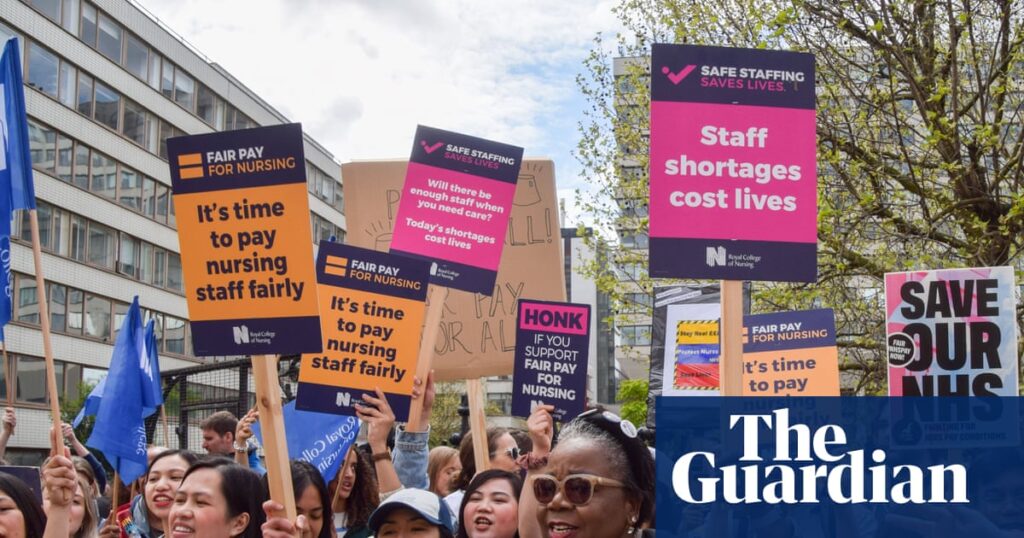Nurses have overwhelmingly rejected the government’s “grotesque” 3.6% pay award for this year, in a move that could lead to the NHS facing further strikes.
Royal College of Nursing members in England, Wales and Northern Ireland have voted by a large majority against accepting the award in an indicative vote run by the union.
The RCN previously called the 3.6% figure “grotesque”, said that it would be “entirely swallowed up by inflation” and highlighted that it was less than doctors and teachers were given.
Well-placed sources say the results of the union’s online survey of 345,000 members in the three countries, which is due later this week, will show a “clear” rejection of the award. That will increase the possibility that the NHS in different parts of the UK could face an autumn or winter of renewed disruption by staff unhappy about their pay, as it did in late 2022 and early 2023.
Resident doctors – formerly known as junior doctors – in England are on the fourth day of a five-day strike in pursuit of their claim for a 29% pay rise. In addition, NHS staff in England belonging to the GMB union, including ambulance crews, last week rejected their 3.6% award in a consultative vote.
Sir Jim Mackey, the chief executive of NHS England, has warned that “continued disruption over the coming months could see a snowball effect for patients and for staff” as a result of doctors continuing to strike until the end of the year and other unions staging walkouts too.
A spokesperson for the RCN said: “The results will be announced to our members later this week. As the largest part of the NHS workforce, nursing staff do not feel valued and the government must urgently begin to turn that around.”
Nurses have seen the real-terms value of their pay eroded by a quarter since 2010/11, as a result of low pay awards and rising inflation, the union says.
Wes Streeting, the health secretary, announced in May that he was giving nurses a 3.6% pay increase for 2025-26. The devolved governments in Cardiff and Belfast have also awarded the same sum.
after newsletter promotion
The RCN will not follow the results of its indicative vote by then staging a legal ballot for industrial action, in contrast to the British Medical Association, the doctors’ union. They will instead ask ministers to talk to them about a range of changes to nurses’ terms and conditions, including better financial support for nursing students to address a fall in applications and changes to Agenda for Change, the longstanding pay structure for UK-wide non-medical NHS staff.
The BMA has also begun seeking the views of consultants – senior hospital doctors – and middle-grade medics in England on the 4% pay rise they were given for this year in a consultative vote, which it called “an insult”.


